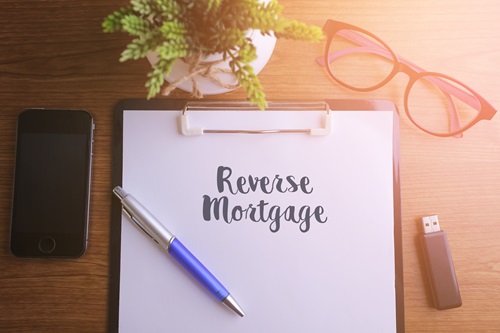
A reverse mortgage is a financial tools that lets homeowners access their home equity without selling their property. While it provides financial flexibility, it’s important to understand how it works, its potential benefits, and any risks involved. By exploring your options, you can make an informed decision that best fits your needs.
Understanding a Reverse Mortgage
A reverse mortgage allows homeowners to convert home equity into cash or a line of credit while continuing to live in their home. Instead of making monthly mortgage payments, the lender provides payments to the borrower. However, the loan must be repaid when the homeowner moves out, sells the home, or passes away.
Unlike traditional loans, this mortgage provides financial relief without requiring immediate repayment. This makes it a popular option for retirees who need additional funds but want to remain in their home.
Different Types of Reverse Mortgages
Since homeowners have different financial needs, there are several types of mortgages available:
- Home Equity Conversion Mortgages (HECMs): These are government-backed loans insured by the Federal Housing Administration (FHA).
- Proprietary Reverse Mortgages: Private lenders offer these loans, typically for high-value homes.
- Single-Purpose Reverse Mortgages: These are available through local or state programs and must be used for a specific purpose, such as home improvements or property taxes.
Borrowers can receive funds in multiple ways. Some choose a lump sum, while others prefer monthly payments or a line of credit they can access when needed. There is also an option to combine different payout structures based on financial goals.
Who Qualifies for a Reverse Mortgage?
To be eligible for this mortgage, homeowners in Columbia SC generally need to meet specific requirements:
- Be at least 62 years old
- Own their home and use it as their primary residence
- Have significant home equity, usually at least 50%
- Keep up with home maintenance, property taxes, and homeowners insurance
Additionally, financial counseling is required for federally insured mortgages. This step ensures borrowers fully understand their obligations before moving forward with the loan.
Advantages of a Reverse Mortgage
A reverse mortgage provides lots of several benefits, making it an appealing choice for many homeowners:
 Reverse Mortgage in Columbia SC
Reverse Mortgage in Columbia SCProvides Financial Flexibility
One of the biggest advantages is the ability to access home equity without selling the home. This can be especially helpful for covering daily expenses, medical bills, or unexpected costs.
Eliminates Monthly Mortgage Payments
Unlike a standard loan, this mortgage won’t require you to pay monthly as long as the borrower continues living in the home. This reduces financial stress and allows homeowners to focus on other priorities.
Helps Homeowners Stay in Their Home
Many people want to remain in their homes for as long as possible. A reverse mortgage allows them to do so while providing extra funds for necessary expenses, such as home modifications or healthcare needs.
Keeps Funds Tax-Free
Since this mortgage payments are considered loan proceeds, they are not subject to income tax. This can be beneficial for homeowners who want to supplement their income without increasing their tax burden.
Disadvantages of a Reverse Mortgage
While a reverse mortgage in Columbia SC has benefits, it also comes with potential downsides:
Involves Loan Costs and Fees
Even though a reverse mortgage provides money to the borrower, it still comes with costs. Origination fees, closing costs, mortgage insurance, and servicing fees can add up, reducing the overall amount available.
Reduces Home Equity Over Time
As homeowners access funds through this mortgage, their home equity decreases. When the loan comes due, selling the home may be the only way to repay the debt. This can impact inheritance plans for family members.
Requires Financial Responsibility
Borrowers must continue paying property taxes, homeowners insurance, and home maintenance costs. If they fail to meet these obligations, the lender may initiate foreclosure proceedings.
 reverse mortgage in Columbia SC
reverse mortgage in Columbia SCCan Complicate Estate Planning
For homeowners planning to leave their property to heirs, this mortgage can create challenges. Since the loan must be repaid, heirs may need to sell the home or find another way to cover the outstanding balance.
When Does a Reverse Mortgage Make Sense?
This mortgage is not for everyone, but it may be a good option for homeowners who:
- Plan to stay in their home long-term
- Need extra income to cover living expenses
- Have limited retirement savings but significant home equity
- Want to delay collecting Social Security benefits
- Need funds for medical expenses or home modifications
- Want to eliminate an existing mortgage payment
Before moving forward, it’s best to consult with a financial advisor or estate planner. Understanding how this mortgage affects long-term financial goals is key to making the right decision.
Exploring Alternatives to a Reverse Mortgage
If this mortgage does not seem like the best option, other financial solutions may be worth considering:
- Home Equity Loan or Line of Credit: These allow homeowners to borrow against home equity while keeping ownership.
- Cash-Out Refinance: Refinancing can provide access to home equity while potentially lowering interest rates.
- Downsizing: Selling the home and purchasing a smaller property can free up equity while reducing expenses.
- Local Assistance Programs: Some government and nonprofit programs offer financial support for homeowners who need help covering expenses.
A reverse mortgage can be a valuable financial tool, but it’s important to understand the details before making a commitment. Weighing the benefits and potential drawbacks will help ensure it aligns with long-term goals. Consult Reverse Mortgage Specialist for more details.
If you’re considering a reverse mortgage, speak with an expert today! Call Reverse Mortgage Specialist now.

No comments:
Post a Comment